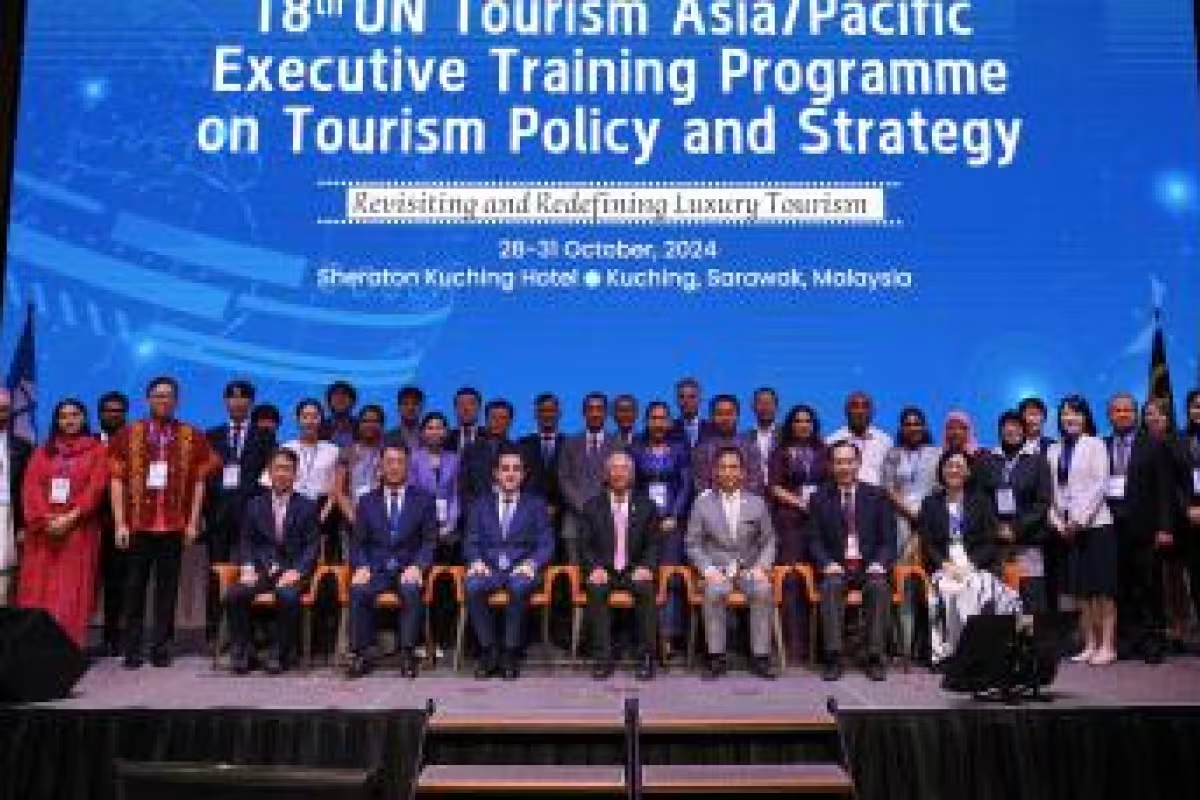
SHERIDAN, WYOMING – November 15, 2024 – The UN Tourism recently held its 18th Asia-Pacific Executive Training Programme on Tourism Policy and Strategy in Kuching, Malaysia, focusing on the evolving landscape of luxury tourism. The program welcomed high-level officials from 20 countries in the region to discuss and explore strategies for growing the luxury travel sector.
Redefining Luxury Travel
The program aimed to redefine luxury tourism by considering various factors, including socioeconomic development, natural and human resources, sustainability advancements, and planning within each country.
A Collaborative Effort
Organized in collaboration with the Ministry of Tourism, Creative Industry and Performing Arts, Sarawak, and sponsored by the Ministry of Culture, Sports and Tourism of the Republic of Korea, the program underscored the importance of partnerships in developing successful tourism strategies.
The UN Tourism Forum on Luxury Tourism Market
The training program commenced with the UN Tourism Forum on Luxury Tourism Market, featuring a keynote presentation by UN Tourism Consultant Angeline Tang, followed by a panel discussion with high-level representatives from the public, private, and academic sectors involved in luxury tourism and tourism development policies.
Key Themes for Luxury Tourism Growth
The executive training program was structured around four interactive sessions, each focusing on a key theme crucial for developing successful luxury tourism strategies in the post-pandemic era.
- Destination Management and Marketing: This session delved into destination management strategies and marketing and promotion specifically targeting luxury tourism.
- Personalized Customer Experience: Recognizing the importance of personalized service in luxury travel, this session emphasized the need for exceptional customer experiences tailored to individual preferences.
- Investment Guidelines: This session provided guidance on investment strategies for luxury tourism development, highlighting the importance of aligning investments with sustainability goals and quality standards.
- Human Resources: The program also underscored the crucial role of human resources in luxury tourism, emphasizing the value of human connection and personalized service for luxury travelers.
Sharing Experiences and Best Practices
Experts from various fields presented and shared their experiences on destination management, marketing, customer experience, and investment strategies in luxury tourism. Participants had the opportunity to highlight their respective countries' key assets and emerging opportunities, as well as their administrations' efforts to implement successful luxury tourism policies and strategies.
Digital Marketing and AI for Unique Brand Identity
Member States agreed that each destination should leverage its unique assets to develop a distinctive luxury tourism brand identity, utilizing digital marketing, artificial intelligence (AI), and data insights.
Meaningful and Exclusive Experiences
Discussions emphasized that luxury tourism is not just about opulence; it's about creating meaningful and exclusive experiences that incorporate personalized and sustainable aspects throughout the traveler's journey.
Policymakers as Enablers
The program highlighted the need for policymakers to adopt a long-term strategic approach that identifies investment opportunities, enhances tourism capacities, and positions them as enablers of luxury tourism development.
Investment for Strong Brand Equity and Sustainability
Investing in luxury tourism can lead to strong brand equity and diverse revenue streams, especially when incorporating sustainable investment practices and quality tourism standards that ensure long-term environmental and cultural preservation.
The 18th UN Tourism Asia-Pacific Executive Training Programme underscored the evolving nature of luxury travel and provided a platform for knowledge sharing and collaboration among key stakeholders in the region. By focusing on sustainability, personalization, and strategic investment, the program aims to guide the growth of the luxury tourism sector in a way that benefits both travelers and destinations.